 W
WGeorge Monck, 1st Duke of Albemarle was a professional soldier from Devon, who fought on both sides during the Wars of the Three Kingdoms. He was a prominent military figure under the Commonwealth but his loyalty was primarily to Oliver Cromwell, who died in 1658, and his support was later crucial in the Restoration of Charles II in 1660. He was rewarded with the title Duke of Albemarle and other senior positions.
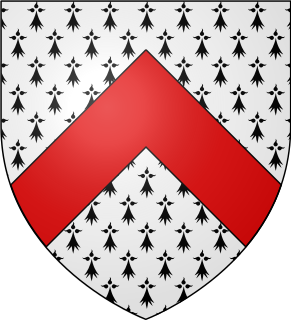 W
WJames Tuchet, 5th Baron Audley, 2nd Baron Tuchet of Heleigh Castle was an English peer.
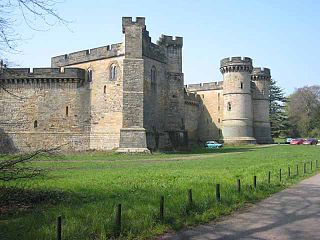 W
WSir Henry Belasyse, also spelt Bellasis, was an English military officer from County Durham, who also sat as MP for a number of constituencies between 1695 and 1715.
 W
WGeneral at Sea Robert Blake was an important naval commander of the Commonwealth of England and one of the most famous English admirals of the 17th century. His successes have been considered to have "never been excelled, not even by Nelson" according to one biographer. Blake is recognised as the chief founder of England's naval supremacy, a dominance subsequently inherited by the British Royal Navy into the early 20th century. Despite this, due to deliberate attempts to expunge the Parliamentarians from history following the Restoration, Blake's achievements tend to remain unrecognized.
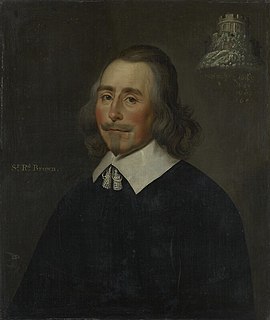 W
WSir Richard Browne, 1st Baronet was a London businessman who became a major-general in the Parliamentary army during the English Civil War, but opposed The Protectorate. He was subsequently Lord Mayor of London after the Stuart Restoration.
 W
WCharles Howard, 1st Earl of Carlisle was an English military leader and politician who sat in the House of Commons at various times between 1653 and 1660 and was created Earl of Carlisle in 1661.
 W
WCharles Cavendish (1620–1643) was an English royalist general, killed at the battle of Gainsborough.
 W
WOliver Cromwell was an English general and statesman who, first as a subordinate and later as Commander-in-Chief, led armies of the Parliament of England against King Charles I during the English Civil War, subsequently ruling the British Isles as Lord Protector from 1653 until his death in 1658. He acted simultaneously as head of state and head of government of the new republican commonwealth.
 W
WLieutenant-General John Cutts, 1st Baron Cutts, PC (Ire), was a British soldier and author.
 W
WArthur Chichester, 3rd Earl of Donegall was an Irish nobleman and soldier. Having succeeded his father as third Earl of Donegall in 1678, he refused to attend the Irish Parliament called by James II in May 1689, but later sat in the Parliament called by William III in October 1692.
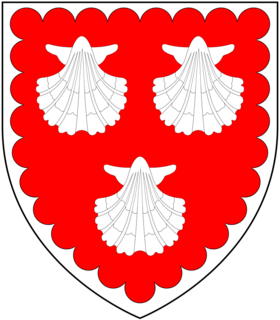 W
WLieutenant-General Thomas Erle PC of Charborough, Dorset, was an English army general and Whig politician who sat in the House of Commons of England and of Great Britain from 1678 to 1718. He was Governor of Portsmouth and a Lieutenant-General of the Ordnance.
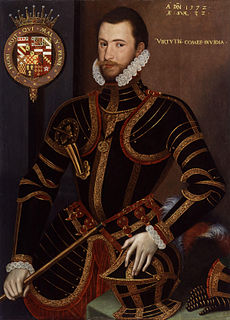 W
WWalter Devereux, 1st Earl of Essex, KG, was an English nobleman and general. From 1573 until his death he fought in Ireland in connection with the Plantations of Ireland, most notably the Rathlin Island massacre. He was the father of Elizabeth I's favourite of her later years, Robert Devereux, 2nd Earl of Essex.
 W
WSir John Fenwick, 3rd Baronet was an English Jacobite conspirator, who succeeded to the Baronetcy of Fenwick on the death of his father in 1676. He was involved in a Jacobite plot to assassinate the monarch. He was beheaded in 1697.
 W
WSir George Fleetwood (1605–1667) was an Englishman who became a Swedish general and baron.
 W
WHenry Carey, 1st Baron Hunsdon KG, was an English nobleman and courtier. He was the patron of the Lord Chamberlain's Men, William Shakespeare's playing company. The son of Mary Boleyn, he was a cousin of Elizabeth I.
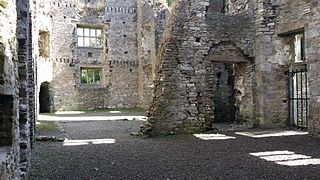 W
WSir John Jephson was an English soldier and politician who sat in the House of Commons between 1621 and 1625.
 W
WLieutenant General Percy Kirke, English soldier, was the son of George Kirke, a court official to Charles I and Charles II.
 W
WMajor General John Lambert, also spelt 'Lambart' was an English Parliamentarian general and politician. Widely regarded as one of the most talented soldiers of the period, he fought throughout the Wars of the Three Kingdoms, and was largely responsible for victory in the 1650 to 1651 Scottish campaign.
 W
WRobert Dudley, 1st Earl of Leicester, was an English statesman and the favourite of Elizabeth I from her accession until his death. He was a suitor for the Queen's hand for many years.
 W
WSir Charles Lucas was an English soldier, a Royalist commander in the English Civil War.
 W
WJames Scott, 1st Duke of Monmouth, 1st Duke of Buccleuch, KG, PC was a Dutch-born English nobleman. Originally called James Crofts or James Fitzroy, he was born in Rotterdam in the Netherlands, the eldest illegitimate son of Charles II of England, Scotland, and Ireland with his mistress Lucy Walter.
 W
WGeneral William Munro (1818–1880) was a senior English Army officer and plant collector, botanist and agrostologist. His botanical works included Hortus Bangalorensis and Hortus Agrensis.
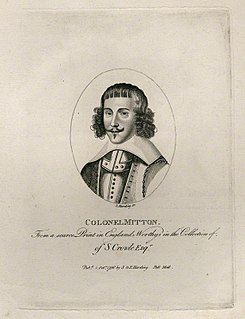 W
WMajor General Thomas Mytton, also spelt Mitton, 1597 to November 1656, was a lawyer from Oswestry who served in the Parliamentarian army during the Wars of the Three Kingdoms and as MP for Shropshire in the First Protectorate Parliament.
 W
WJohn Dudley, 1st Duke of Northumberland was an English general, admiral, and politician, who led the government of the young King Edward VI from 1550 until 1553, and unsuccessfully tried to install Lady Jane Grey on the English throne after the King's death. The son of Edmund Dudley, a minister of Henry VII executed by Henry VIII, John Dudley became the ward of Sir Edward Guildford at the age of seven. Dudley grew up in Guildford's household together with his future wife, Guildford's daughter Jane, with whom he was to have 13 children. Dudley served as Vice-Admiral and Lord Admiral from 1537 until 1547, during which time he set novel standards of navy organisation and was an innovative commander at sea. He also developed a strong interest in overseas exploration. Dudley took part in the 1544 campaigns in Scotland and France and was one of Henry VIII's intimates in the last years of the reign. He was also a leader of the religious reform party at court.
 W
WAymer de Valence, 2nd Earl of Pembroke was a Franco-Welsh nobleman. Though primarily active in England, he also had strong connections with the French royal house. One of the wealthiest and most powerful men of his age, he was a central player in the conflicts between Edward II of England and his nobility, particularly Thomas, 2nd Earl of Lancaster. Pembroke was one of the Lords Ordainers appointed to restrict the power of Edward II and his favourite Piers Gaveston. His position changed with the great insult he suffered when Gaveston, as a prisoner in his custody whom he had sworn to protect, was removed and beheaded on the instigation of Lancaster. This led Pembroke into close and lifelong cooperation with the King. Later in life, however, political circumstances combined with financial difficulties would cause him problems, driving him away from the centre of power.
 W
WColonel General Sydnam Poyntz, also Sydenham Poynts, was an English soldier who served in the Thirty Years' War and the English Civil War.
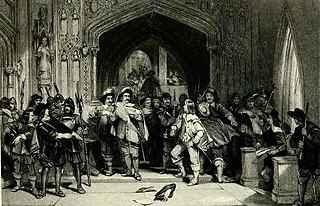 W
WColonel Thomas Pride was a Parliamentarian commander during the Wars of the Three Kingdoms, best known as one of the regicides of Charles I and as the instigator of Pride's Purge.
 W
WLieutenant-General Henry Wilmot, 1st Earl of Rochester, known as The Lord Wilmot between 1643 and 1644 and as The Viscount Wilmot between 1644 and 1652, was an English Cavalier who fought for the Royalist cause during the Wars of the Three Kingdoms.
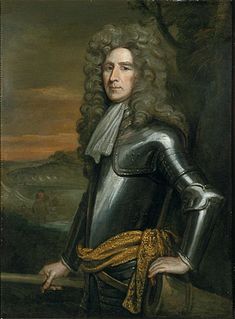 W
WHenry Sydney, 1st Earl of Romney was an English politician and army officer. Often dismissed as a mere flunkey and court favourite, he was nevertheless an expert Statesman, with an adroitness for manipulating men. He was one of the Immortal Seven, and in fact the author of the invitation that group extended to their future King.
 W
WThomas Montagu, 4th Earl of Salisbury, KG of Bisham in Berkshire, was an English nobleman and one of the most important English commanders during the Hundred Years' War.
 W
WFriedrich Hermann von Schönberg, 1st Duke of Schomberg, 1st Count of Mertola, was a Marshal of France and a General in the English and Portuguese Army. He was killed at the Battle of the Boyne in 1690.
 W
WMeinhardt Schomberg, 3rd Duke of Schomberg, 1st Duke of Leinster, KG, was a general in the service of Willem, Prince of Orange and Stadtholder of Holland, later King William III of England. He fought in the Franco-Dutch War, then played a crucial role at the Battle of the Boyne in July 1690 during the Williamite War in Ireland and finally commanded the British troops deployed to Portugal during the War of the Spanish Succession.
 W
WThomas Scrope, 10th Baron Scrope of Bolton was the son of Henry Scrope, 9th Baron Scrope of Bolton and Margaret Howard, daughter of Henry Howard, Earl of Surrey and Frances de Vere.
 W
WEdward Seymour, 1st Duke of Somerset PC, also known as Edward Semel, was the eldest surviving brother of Queen Jane Seymour (d. 1537), the third wife of King Henry VIII. He was Lord Protector of England from 1547 to 1549 during the minority of his nephew King Edward VI (1547–1553). Despite his popularity with the common people, his policies often angered the gentry and he was overthrown.
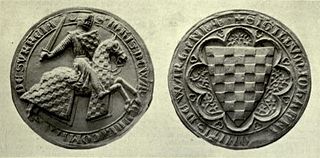 W
WJohn de Warenne, 6th Earl of Surrey was a prominent English nobleman and military commander during the reigns of Henry III of England and Edward I of England. During the Second Barons' War he switched sides twice, ending up in support of the king, for whose capture he was present at Lewes in 1264. Warenne was later appointed a Guardian of Scotland and featured prominently in Edward I's wars in Scotland.
 W
WSir John Talbot was an English politician, soldier, and landowner, who was Member of Parliament for various seats between 1660 and 1685. He held rank in a number of regiments, although he does not appear to have seen active service.
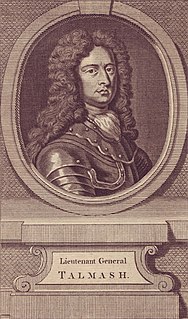 W
WThomas Tollemache, also spelt Talmash or Tolmach, was an English soldier and Member of Parliament. Beginning his military career in 1673, in 1686 he resigned his commission in protest at the introduction of Catholic officers into the English army by James II. A supporter of military intervention by the Protestant William of Orange, in early 1688 he joined a regiment of the Anglo-Scots Brigade, a long established mercenary unit in the Dutch army.
 W
WBrigadier-General Henry Trelawny was a British Army officer of Cornish descent, a Member of Parliament and Vice-Admiral of Cornwall.
 W
WSir William Waller was an English soldier and politician, who commanded Parliamentarian armies during the First English Civil War, before relinquishing his commission under the 1645 Self-denying Ordinance.
 W
WAmbrose Dudley, 3rd Earl of Warwick, KG was an English nobleman and general, and an elder brother of Queen Elizabeth I's favourite, Robert Dudley, Earl of Leicester. Their father was John Dudley, Duke of Northumberland, who led the English government from 1550–1553 under King Edward VI and unsuccessfully tried to establish Lady Jane Grey on the English throne after the King's death in July 1553. For his participation in this venture Ambrose Dudley was imprisoned in the Tower of London and condemned to death. Reprieved, his rehabilitation came after he fought for King Philip in the Battle of St. Quentin.
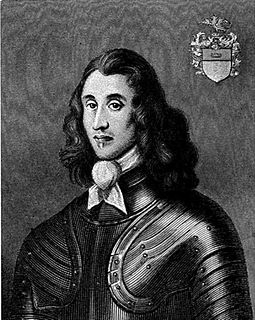 W
WCharles Worsley was an English soldier and politician. He was an ardent supporter of Oliver Cromwell and was an officer in the Parliamentary army during the English Civil War and the Commonwealth of England. He sat in the House of Commons in 1654 and governed a district during the Rule of the Major-Generals.